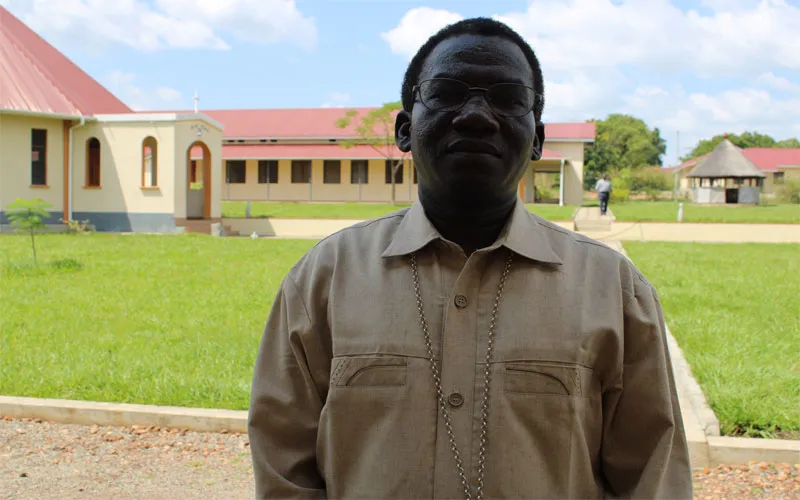In the face of this challenge, particularly within the territory covered by his diocese, Bishop Nyodho is appealing for help to make the flooding and its effects known far and wide.
“As a Bishop, I call on the government of South Sudan and of Northern Liech state and other places, to come up and talk about this challenge of flooding; it is already something affecting the lives of the people,” he said referencing the local government and added, “People should not keep quiet, if you are unable to do it, come out and speak about it so that anybody of good will can intervene and help.”
He is seeking assistance from the wider international community to “help the people who are suffering in those places” devastated by the floods.
“I appeal to the international community, the people of South Sudan, and all people of goodwill to come to the rescue of the people of South Sudan with regard to natural disaster of floods,” Bishop Nyodho said.
“Even a few NGOs which were working there evacuated to Malakal and some even reached Juba. Where can the normal people who cannot be evacuated go? The NGOs cannot operate in water. What are we going to do with those people remaining behind?” the Bishop posed.
(Story continues below)
All the leaders seem to be doing is raise the alert of the floods, “that people should come and rescue the people around Mayom and other places that are affected in Maban, Akobo, Lou Nuer and Pibor,” Bishop Nyodho said expressing the widespread nature of the floods and the need for intervention from persons and entities with means.
The last time the region had flooding was in 2008, Bishop Nyodho said, citing a “priest who has been staying around Mayom.”
If floods continue, the Bishops thinks, the existent gloom will continue considering the people’s “crops are destroyed, their places are destroyed, they have already fled from some of the places.”
He adds, “We cannot even talk of the future because people are already suffering now. But the issue is how to come to the aid of these people and how to help them because if we wait for more days, the issue might worsen and people might lose lives.”
The South Sudanese Bishop expressed fear for much more saying, “With the water and all these things, sooner or later, the water borne diseases are going to come, and will affect both human, cattle and wildlife in that area. If their crops and their animals are destroyed, there will be no life to speak about.”
Like Job in the Sacred Scriptures who experienced suffering “undeservedly,” Bishop Nyodho said, people of God in his diocese of Malakal seem to interrogate God, thinking that “God has abandoned them.”
Still like Job, the South Sudanese Prelate said, the children of God in his diocese have kept the faith, striving “to persevere and pray and entrust their lives in the hands of the same God.”
“The church in the diocese of Malakal is still very vulnerable because of a lot of destruction of things during the war,” Bishop Nyodho said.
On a lasting solution to the challenges bedeviling the world’s newest country, Bishop Nyodho shared, “Everything depends on peace, if peace is implemented and materializes, it can help. With peace strategies can be made to control all these natural disasters, but now people are still in the war situation.”
He concluded, “We hope that the government is formed and peace implemented so that people go to another step of development, rebuilding what has been destroyed including these natural disasters. We pray that peace comes so that people can plan for the future otherwise people are just surviving on daily basis.”
While South Sudan’s president Salva Kiir and leader of a rebel grouping Riek Machar are expected to form a unity government as a realization of the Revitalized Transitional Government of National Unity on November 12, this hope for peace does not seem straightforward, according to a report.
The Security Council of the UN is insisting that “the South Sudan parties should form a unity government by 12 November with no delay,” Radio Tamazuj has reported.
Fr. Don Bosco Onyalla is ACI Africa’s founding Editor-in-Chief. He was formed in the Congregation of the Holy Ghost Fathers (Spiritans), and later incardinated in Rumbek Diocese, South Sudan. He has a PhD in Media Studies from Daystar University in Kenya, and a Master’s degree in Organizational Communication from Marist College, New York, USA.








